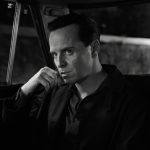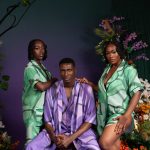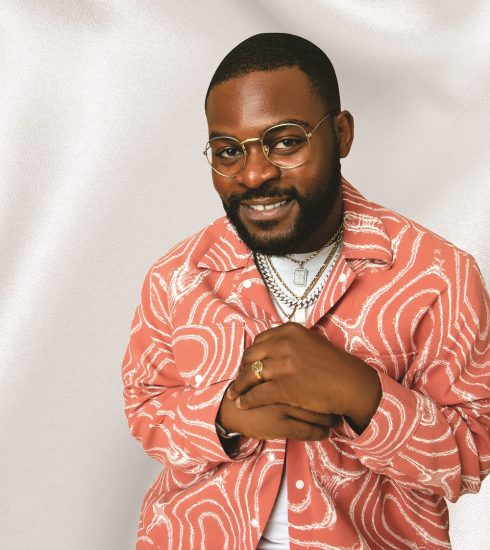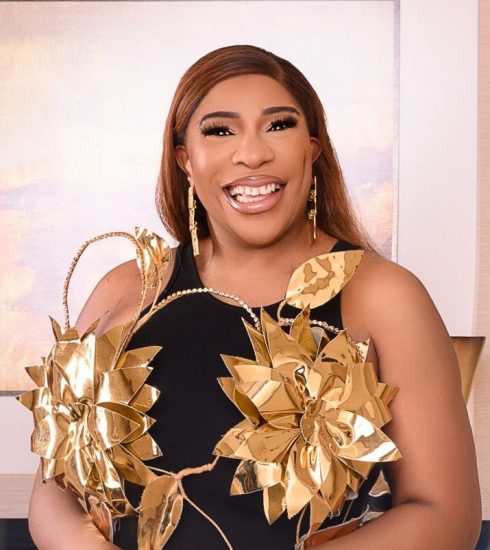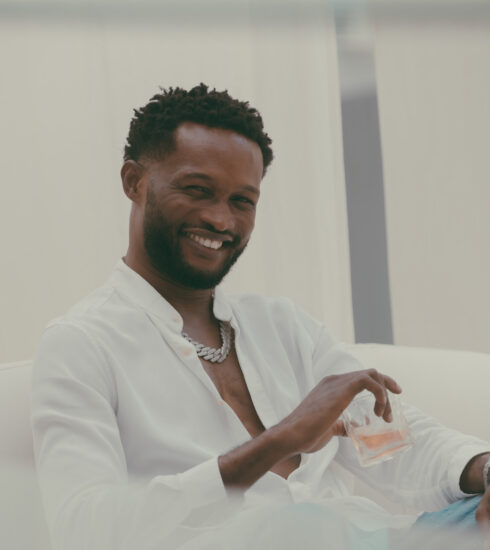Meet The Culture Squad: Daala, Iloosie & Oluchi
Culture has always guided the entertainment business, permeating everything from music to television. As entertainment and culture work together to shape trends, stories, and social standards, we have seen over time how powerfully they complement one another. Paramount Africa has established a distinct position in this ever-changing landscape by promoting African culture and heritage through various television channels and multimedia offerings.
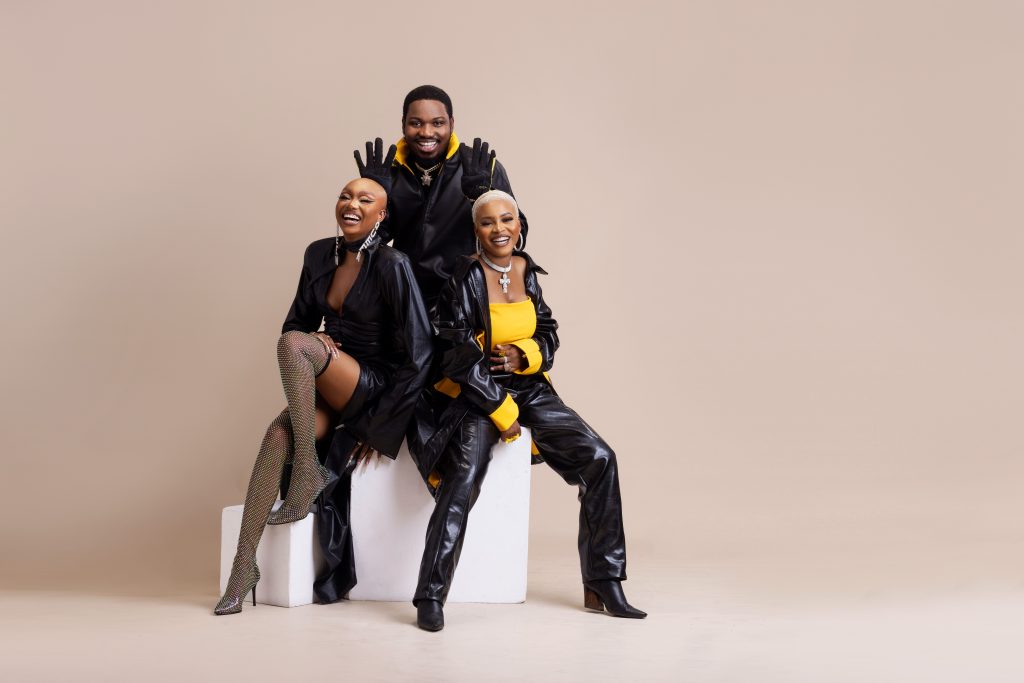 There has been a rapid expansion and development in the television hosting industry. An increasing number of people are taking the stage and leveraging their platforms and voices to engage audiences more deeply. Leading this change is the dynamic group known as the Paramount Africa Culture Squad, which is made up of individuals committed to advancing culture in the entertainment industry. Among them are Daala, Iloosie, and Oluchi, whose journey from humble beginnings to being prestigious TV hosts exemplifies the tenacity and enthusiasm propelling the sector ahead. While Iloosie Omonhinmin, better known by his stage name Ilowitdflo, enthrals viewers on MTV Base with his charm and experience, Daala Oruwari delivers her contagious energy and red carpet ability to BET Africa. Oluchi Harrison, a well-known face on News Central TV and ONTV’s Scoop, also works for MTV Base, and she incorporates a strong passion for African culture and design into her presenting approach.
There has been a rapid expansion and development in the television hosting industry. An increasing number of people are taking the stage and leveraging their platforms and voices to engage audiences more deeply. Leading this change is the dynamic group known as the Paramount Africa Culture Squad, which is made up of individuals committed to advancing culture in the entertainment industry. Among them are Daala, Iloosie, and Oluchi, whose journey from humble beginnings to being prestigious TV hosts exemplifies the tenacity and enthusiasm propelling the sector ahead. While Iloosie Omonhinmin, better known by his stage name Ilowitdflo, enthrals viewers on MTV Base with his charm and experience, Daala Oruwari delivers her contagious energy and red carpet ability to BET Africa. Oluchi Harrison, a well-known face on News Central TV and ONTV’s Scoop, also works for MTV Base, and she incorporates a strong passion for African culture and design into her presenting approach.
In this interview with THEWILL DOWNTOWN’s Dorcas Akintoye, Paramount Africa’s Culture Squad discuss their journey in the entertainment industry, their passion for promoting culture, and the impact they hope to make on audiences across the continent.
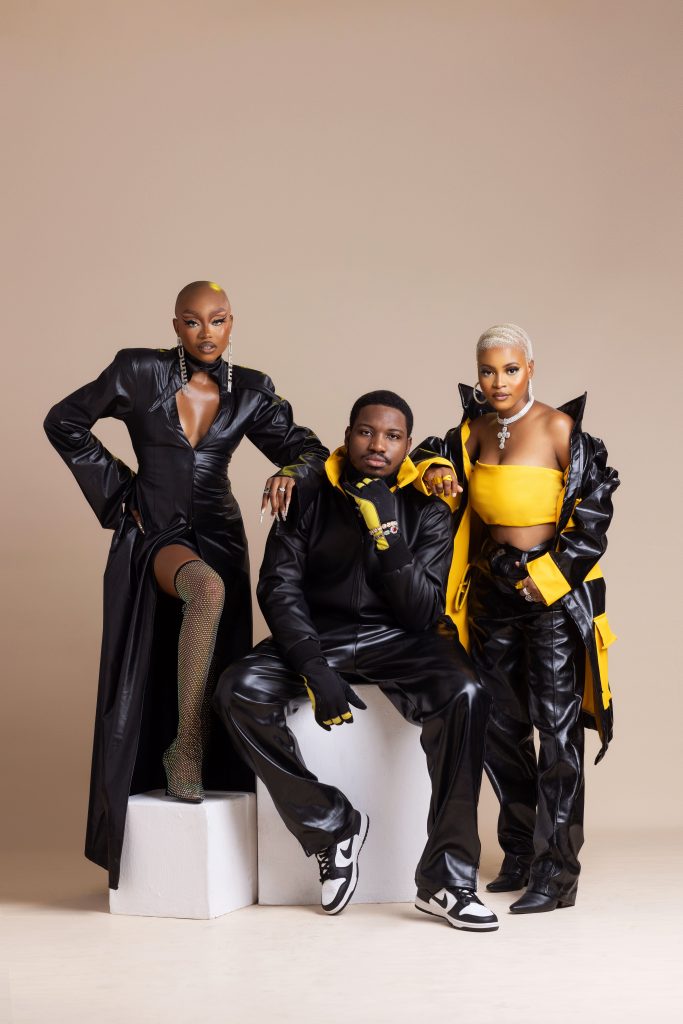
DAALA
What inspired you to pursue a career in television hosting and entertainment?
I’ve always been drawn to communicating and connecting with people, which led me to pursue my bachelor’s degree in Mass Communication at the University of Lagos. I always longed to be a radio presenter, and interestingly, during my university days, friends would approach me to make prank calls (while pretending to be a late-night love show host) to people they were in relationships with to see if they were loyal or not. Talk about an unconventional introduction to hosting, right? That’s how it all started for me!
However, my journey took an unexpected turn when I started accompanying my mother to her former job managing a hotel with one of the biggest entertainment events centres back then in Lagos. Witnessing the vibrant atmosphere and excitement of events ignited a passion for red carpet hosting within me; although I was a shy kid back then, this helped me discover a newfound confidence in front of the camera. Since then, I’ve been dedicated to bringing joy and entertainment to audiences through television hosting, which has become my happy place.
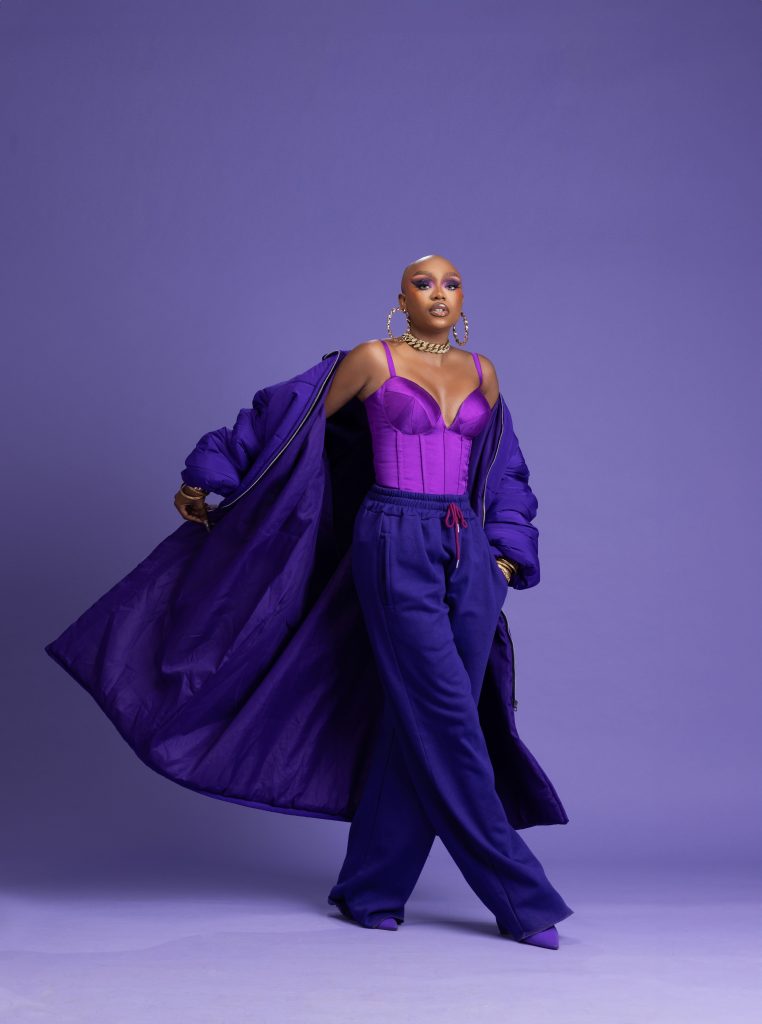 How has your experience as a red carpet host influenced your approach to presenting?
How has your experience as a red carpet host influenced your approach to presenting?
My extensive experience hosting red carpets and even a live TV show that ran daily for three years has significantly shaped my approach to presenting. It taught me the importance of spontaneity, quick thinking, and making guests feel comfortable in front of the camera. On the red carpet, you have to be adaptable and engaging. This positively translated into my overall presenting style, making it more dynamic and audience-focused.
I once had a situation where I was about to host the red carpet at a major award show, and about 10 minutes before the event started, I was told that it would be broadcast live. Still delivering an amazing show in moments like these has helped refine my presentation approach and made me more confident.
What do you hope to bring to BET Africa as a member of the Culture Squad?
Being a BET Africa Culture Squad member is a dream come true! As a Culture Squad member, I will contribute to the channel’s programming lineup and mission of showcasing the best of African culture and talent to the world.
I aim to do this by bringing a vibrant mix of energy, authenticity, and a dash of spice to the screen while fostering meaningful connections with the viewers and taking them on an exciting ride of cultural exploration, highlighting untold stories through engaging content that resonates with the diverse audience. So, buckle up and join me on this wild journey as we turn up the volume on culture.
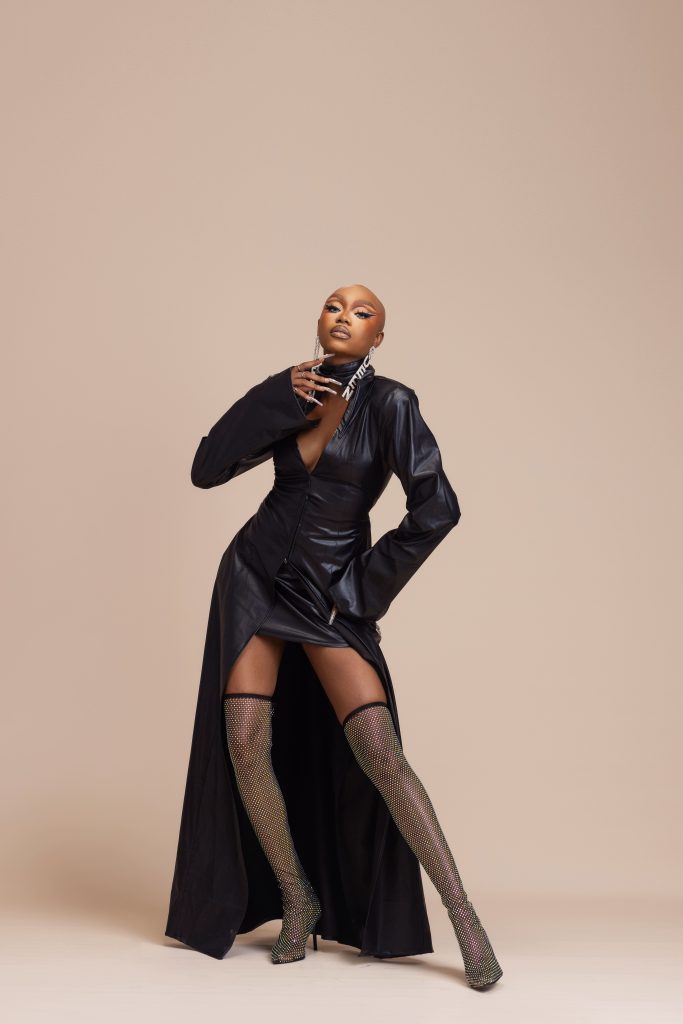 Who are some of your biggest inspirations in the entertainment industry, and why?
Who are some of your biggest inspirations in the entertainment industry, and why?
In my line of work, the formidable IK Osakioduwa inspires me. I adore him not only because of his humorous and unpredictable personality but also because he has mastered the art of keeping the crowd engaged and spellbound.
Another person I draw inspiration from is Burna Boy. I will forever be in awe of how a young boy from Port Harcourt (where I’m from) was able to ascend from humble beginnings and achieve international recognition, solidify his stand on the global stage, and ultimately be popularly referenced as the African Giant.
How do you see the role of television in shaping African culture and narratives?
Television has always served as a powerful tool for cultural preservation. Documentaries and TV programs showcasing ceremonies, festivals, African art, culture and music ensure their continued relevance and transmission to future generations. However, television’s impact goes beyond mere preservation; it acts as a platform for amplifying new voices and social change. Hard-hitting documentaries and thought-provoking dramas can spark conversation about critical issues, challenging societal norms and inspiring new movements. African music videos and youth-oriented programming can introduce new styles, social movements, and ways of thinking, shaping the narrative of what it means to be African in the 21st century.
Can you share a mantra or philosophy that guides you in both your personal and professional life?
My personal and professional philosophy is deeply rooted in my favourite saying: “Fear is faith in the wrong god.” When we let fear dictate our actions, we put all our trust in things going wrong instead of trusting in ourselves and what we can achieve.
The most profound lesson I’ve learnt is that God will never give us more than we can handle. So, I use this as a nudge to believe in the good stuff, to believe in myself, and not let fear hold me back.
ILOOSIE
How did you first become involved in broadcasting and media production?
Oh, that’s a story. Back in September 2013, I was fresh out of film school, where I studied Film & Television Production, but somehow found myself on the delightful side of performance, and I dare say I was good at it. Because of this newly found love for performance, I decided to chase acting.
Then season one of MTV Shuga Naija came calling, and oh boy – my audition story for this was a ride, but I’ll leave that for another day. At the audition, I met Ehiz Okoeguale, aka Ehiz Dadaboy, in person for the first time; we had an awesome, albeit short interaction. I remember when he said, “Y’all go and take over the world”. In hindsight, it was banter, but at the time and at that moment, it inspired me to pay closer attention to something that wasn’t on my radar before that —Television Hosting!
Fast-forward to June 2014, I had given up on acting because the audition hustle wasn’t for me. I had gotten a call back at every audition I went for but hadn’t booked anything major.
A former lecturer, now turned my friend, Folawewo Aiyegbusi, aka FollyFlo, had sent a message to my Facebook page, which I caught very late because I was bad with social media. I reached out to her, and it turns out I had missed that audition, but a new one was happening at Obasa Road in Ikeja. I auditioned there and bagged my first official TV hosting job as a ‘Channel Ambassador’ for R2TV, and the rest, as they say, is history.
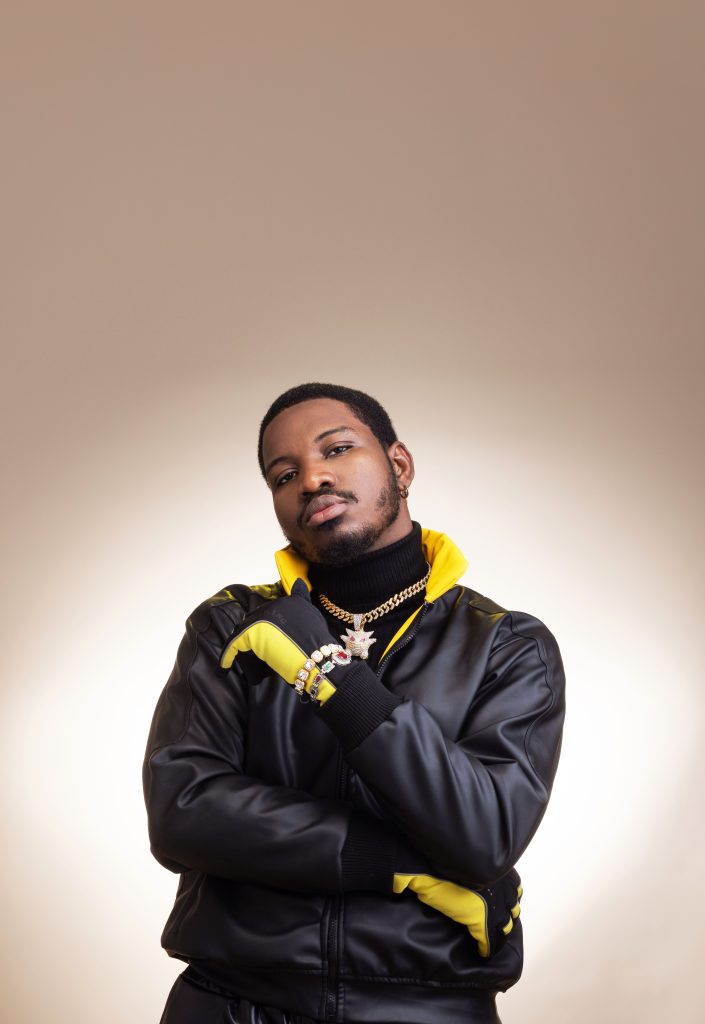 You’ve been a part of the Paramount Africa Culture Squad for a while now. What motivates you to continue evolving and innovating as a presenter on MTV Base?
You’ve been a part of the Paramount Africa Culture Squad for a while now. What motivates you to continue evolving and innovating as a presenter on MTV Base?
There have been many motivating factors behind my MTV Base journey so far, but two major ones are the goal to “go and conquer the world” and the huge chance at global recognition with a brand like MTV Base and Paramount.
People’s feedback has also been another factor. I am humbled by some of the beautiful messages I get from people who watch what I do on TV.
Real-life encounters are another. I had once taken a boat to a beach house for a friend’s birthday; when we got back, the entire community in that area swarmed us, wanting to take pictures and make videos. At first, I thought they mistook me for someone else, but the constant yelling of “Ilo MTV Base” quickly changed that notion.
Honestly, it was a surreal experience, not because of the ‘oh look, I’m popular’ factor, but because at that moment, I felt like a part of that community, and the thought that I brought them together in that way was humbling.
So, the goal and the people are why I do it and who I do it for.
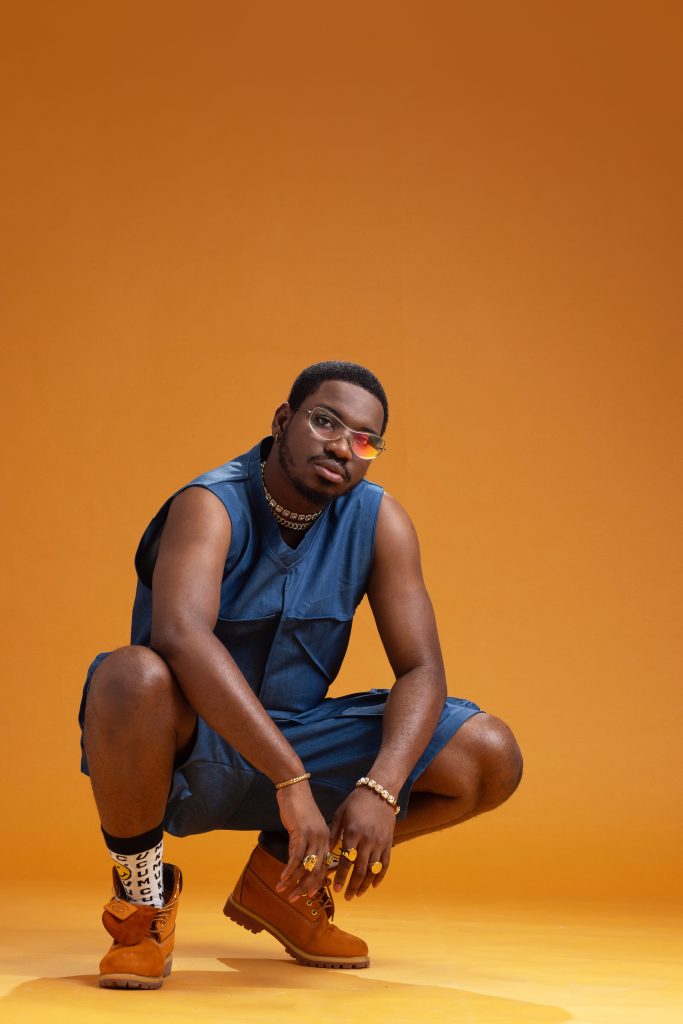 How do you approach the unique challenges and opportunities of hosting on a youth-centric channel?
How do you approach the unique challenges and opportunities of hosting on a youth-centric channel?
It’s a constant learning experience. The key lies in understanding a broad demographic’s diverse needs and interests. Researching trends, engaging with social media conversations, and actively listening to young audiences is crucial for staying relevant. Developing content that is not only informative but also visually stimulating and emotionally resonant is important to capture their attention. Also, by creating opportunities for other young people like myself to create content, share their stories, and engage in dialogue, we empower them to contribute to the narrative and shape the general appeal of the channel. Ultimately, it’s about balancing entertainment and information, ensuring the content resonates while providing valuable information.
Capturing and holding their attention requires informative, visually stimulating, and emotionally resonant content. Simply lecturing at them won’t cut it. I have to create things they genuinely want to watch and engage with. By empowering other young creators like myself to share their stories and perspectives, we can build a channel that truly represents and resonates with youth culture. I see it as my role to facilitate that dialogue and give a platform to the diverse voices of my generation.
How do you see the role of music and pop culture in shaping societal norms and values?
Music and pop culture hold a powerful position in our society. Musicians can be potent social commentators, using their lyrics and performances to address critical issues like social justice, gender equality, and environmental concerns. Pop culture can explore new behaviours and perspectives through films, television shows, and social media trends. Portraying different characters and relationships can also challenge traditional norms and promote inclusivity. We see how catchy anthems mobilise movements, and popular artists can become vocal advocates for social causes. By sparking conversation and encouraging empathy, music and pop culture play a crucial role in shaping the social landscape and the values we hold dear.
What has been the most rewarding aspect of your career in broadcasting so far?
That’s a tough one. Broadcasting has given me so much regarding career milestones and personal achievements. However, the top of my list right now would be bagging the award for On-Air Personality of the Year at The Future Awards Africa last year.
Outside of your work, what are some of your passions or interests that people may not know about?
I’m extremely passionate about filmmaking, but I guess that sort of counts as my work. I’m also extremely passionate about sharing the gospel of Jesus Christ, and I’m privileged to have a radio show I do every Sunday from 6:00 am – 11:00 am on 88.5 UFM.
I’m also passionate about empowering people to thrive wherever they find themselves and achieve their goals. I do my best to support them as much as I can.
I have a major interest in the service industry because I believe we can do better as a nation with service provision. My wife and I are working on something for a certain demographic, and we’ll announce it when the time is right.
Who are some individuals or figures that have significantly impacted your career?
Oh boy, this is a long one! I’ll start at the top and go chronologically.
I already mentioned FollyFlo, then Deborah Odutayo, who gave me my first shot at broadcasting. Shola Thompson is another figure who helped build my foundation in radio, and King James Lyamghon gave me the privilege at a time when there were even more qualified people.
Then Olamide Adedeji and I built something awesome at Bounce. One of my huge mentors and big brother, Vj Adams, still guides me in my career journey. Adim Isiakpona, another huge mentor and friend who continues to guide me personally and professionally, and Fay Fay, who introduced me to the world of podcasting and gave me my first major role as a lead in a podcast series. Not to mention, Toheeb Azeez always allowed me to create magic with Red Bull, while Solafunmi & Evi Westwick brought me into the Paramount family. My fellow team members at Paramount and MTV Base have been instrumental to my growth in the industry and, of course, my gorgeous, amazing wife and queen of my supporters’ club.
I could keep going because I’m a man made by people. Isn’t that the true testament of any great person?
My final mention goes to my Lord and Saviour, Jesus Christ, for I am nothing without Him.
OLUCHI
What inspired you to pursue a career in television hosting and entertainment journalism?
My career journey has been a story of childhood love. My mum recently mentioned that growing up, I would always say, “I want to be a presenter”, and when they would ask what I intended to study, I didn’t know what course it was, but I just knew I wanted to be a presenter. I then found out by the time I was in junior secondary school that I had to study Mass Communication to achieve this. This pushed me to get my Bachelor’s Degree in Mass Communication; after that, I began my journey in media, swaying through all three arms of media, inclusive of broadcast, print, PR & marketing, for close to a decade.
What do you hope to bring to MTV Base’s Culture Squad as a vibrant presenter and entertainment anchor?
I hope to bring the wealth of knowledge I have garnered throughout my career in the media, adding a little extra flavour to your screens and contributing to the channel’s legacy of being a hub for youth entertainment and culture.
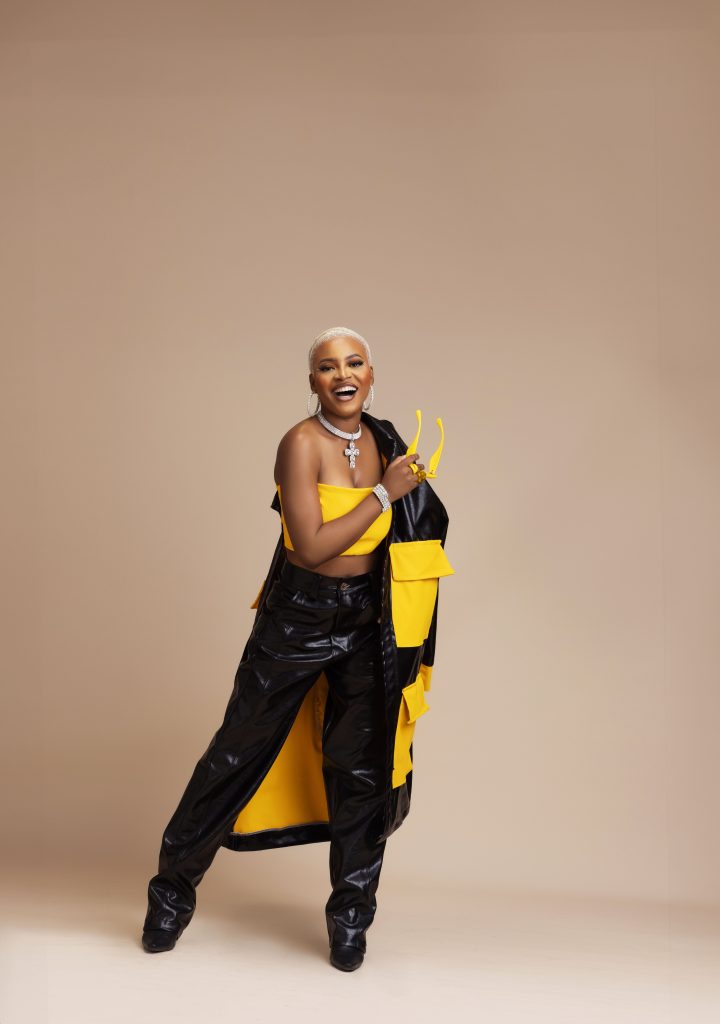 What do you think is the significance of representation in the media, especially for African audiences?
What do you think is the significance of representation in the media, especially for African audiences?
Representation in media holds immense significance for African audiences. It acts as a mirror reflecting their cultures and lived experiences, building a deep sense of belonging and self-worth. This is important because the media has the power to combat negative stereotypes that have plagued the portrayals of Africans for far too long. Instead, accurate representation can showcase the vast diversity of African cultures and people. It can present positive role models who inspire future generations and demonstrate the possibilities on the continent. When we get accurate representation in media, it can have a ripple effect, attracting investment and creating a more inclusive media market that benefits both creators and consumers of African content.
How do you think the media landscape in Africa has evolved over the years, and what role do you see yourself playing in its future?
The African media landscape has undergone a remarkable transformation in recent years. We’ve witnessed a surge in local content creators, an increase in the production of television channels, and an increase in internet access. This empowers Africans to consume media content and become storytellers, moving away from stereotypical portrayals dominated by foreign media. Technological advancements, particularly the rise in the use of smartphones, have also fueled this transformation by making media significantly more accessible. As a member of the MTV Base Culture Squad, I play a vital role in the future of African media. We serve as a platform for amplifying African talent and showcasing the work of musicians, filmmakers, directors and other creatives. By championing diverse voices and experiences, our understanding and connecting with young African audiences will be deeper. It’s about empowering a generation and ensuring the media reflects the richness of African stories.
 Who are some individuals or figures that have inspired you in your journey as a presenter and journalist?
Who are some individuals or figures that have inspired you in your journey as a presenter and journalist?
My journey has been a mix-and-match-type situation. I take the good of what I like from various sources and individuals who have paved the way for journalists and broadcasters, especially amplifying the female voice.
How do you handle criticism and feedback, both professionally and personally?
I believe criticism and feedback can be tools for growth if applied correctly. No matter how odd, nice, or bad feedback is, I always learn to take out what is most necessary, important, and edifying, both professionally and personally. Life is a journey and a learning process, so every piece of information that can make that journey easier is paramount.

Dorcas Akintoye is a versatile writer with a passion for beauty, fashion, relationships, and culinary delight. With a keen eye for detail and a passion for storytelling, she adds a touch of elegance to every topic she explores. She is a writer at THEWILL DOWNTOWN.


